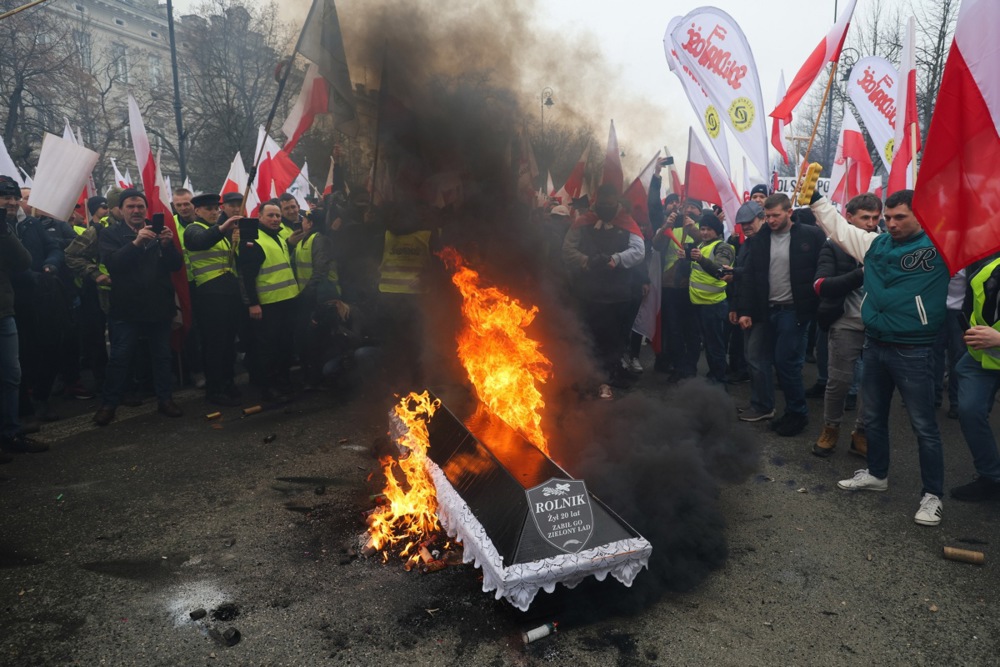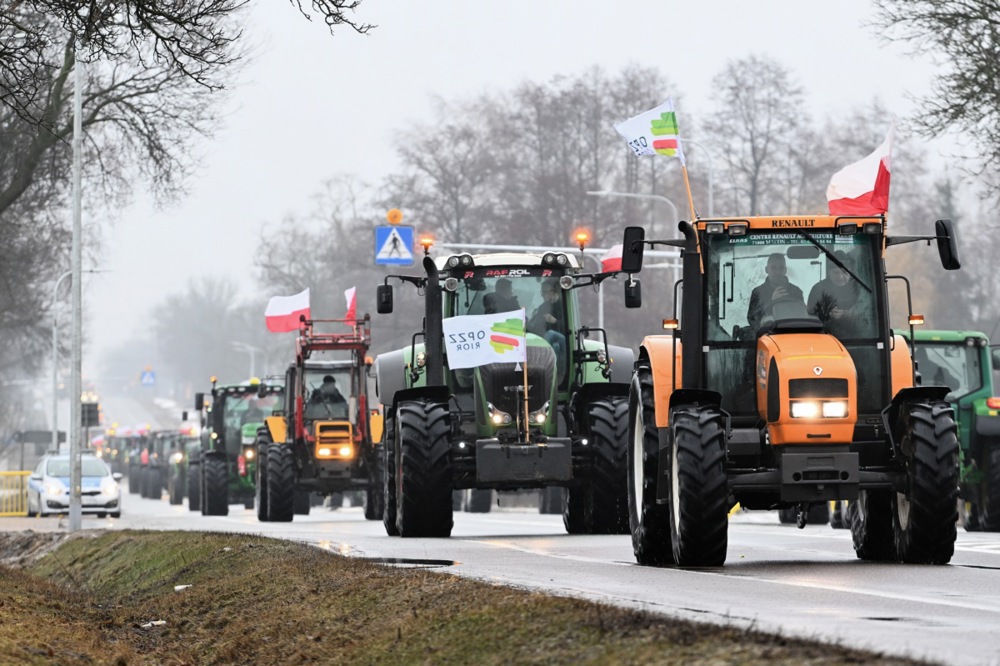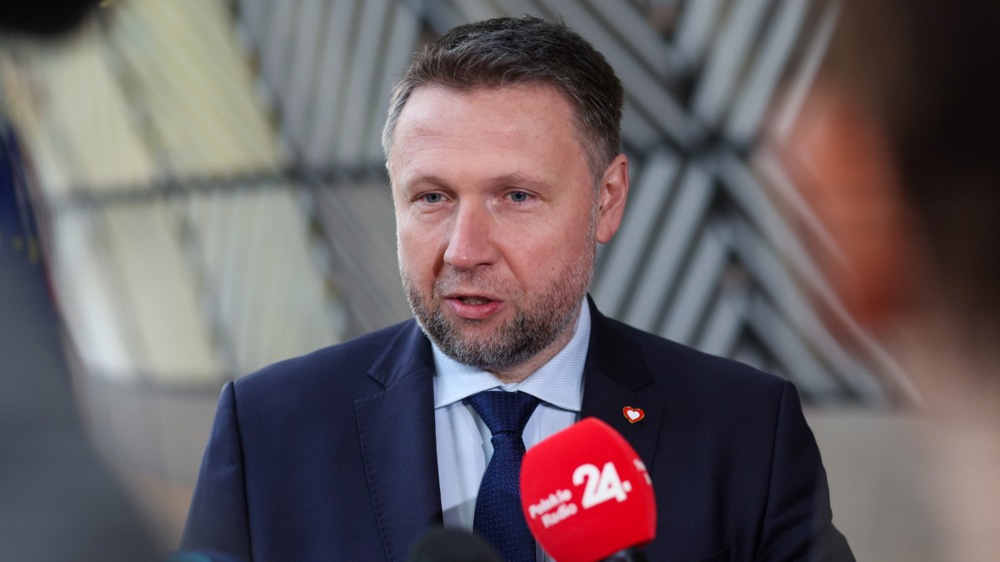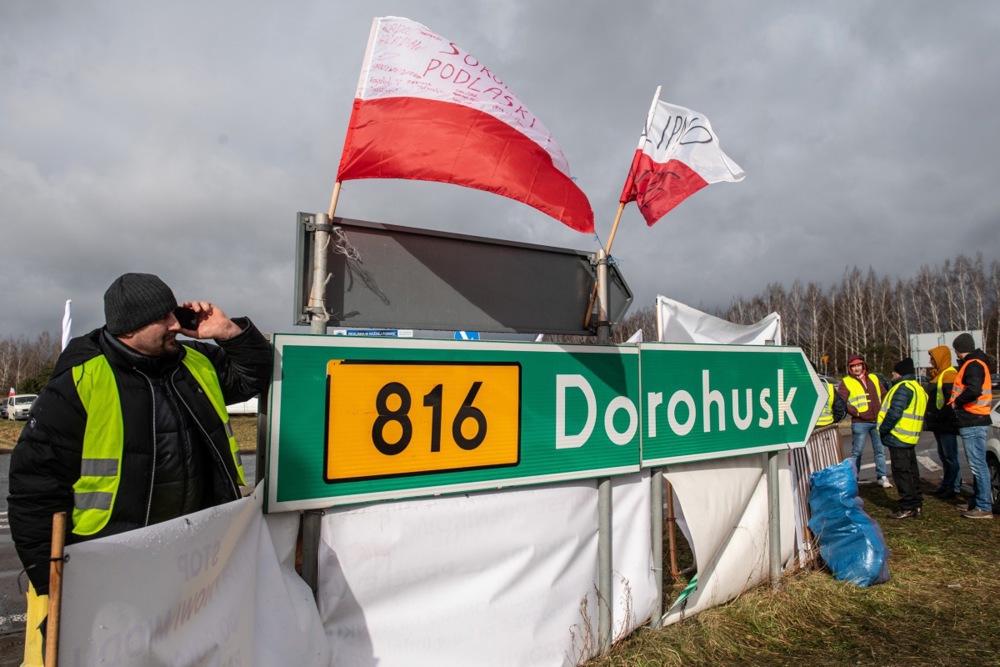Polish farmers continued their protests despite some agricultural organisations signing an agreement with the Government.
The ongoing demonstrations on March 20 at one stage saw farmers dump manure outside the family home of the Speaker of Parliament Szymon Hołownia.
They deposited piles of animal excrement and car tyres at the gateway to the property owned by Hołownia. Protest banners were attached to fencing surrounding it, accusing the Speaker of betraying Polish rural areas and “thanking” him for farmers allegedly having been beaten up and tear-gassed during their previous protest in Warsaw.
They were referring to a demonstration held in the Polish capital on March 13, which saw clashes with the police outside the Parliament building. Law enforcement blamed the incident on the protestors, while opposition politicians and farmers claimed the violence had been caused by outside agitators.
Hołownia told reporters his elderly parents lived at the targeted property and that they were badly shaken by the incident. He added he did not “believe this was the action taken by farmers. This was hooligans posing as farmers”.
The police are likely to bring charges against the perpetrators.
The farmers’ protests against the European Union’s Green Deal and food imports from Ukraine have taken place across 580 locations, with the police estimating around 70,000 individuals have been involved. That makes the demonstrations the largest so far during the “farmers action”, which began in February.
Agricultural workers have often blocked access roads to major cities, including the capital Warsaw, as well as border crossings with Ukraine.
Ahead of the action on March 20, the mayor of Wrocław, Jacek Sutryk, banned protests from taking place on the southwestern Polish city’s thoroughfares. He stressed that, although he “understands the farmers’ demands”, it was his duty to ensure that residents “have the right to commute to work, school or home without tractors blocking the streets”.
He also noted the ambulance service and fire brigade had warned that such blockades would cause “a real threat to life or health” by potentially disabling fast access to those requiring help.
The mayor’s decision was upheld by a court but, alonsgide the Warsaw protests, farmers nevertheless blocked the street where he lives, hanging their banners from his property’s fencing – although no manure was involved.
Both the Prime Minister Donald Tusk and the agriculture minister Czesław Siekierski have engaged in dialogue with farmers leaders, promising them their grievances would be taken up at EU level.
On March 19, Tusk appealed to the farmers to “open their eyes” and see that his Government was “doing everything to help you” whereas “others are doing everything to use you against me and my Government”.
A day later, the European Parliament announced it had reached an agreement with the European Council to extend the temporary suspension of import duties and quotas on Ukrainian agricultural exports to the EU for another year until June 5, 2025.
It added that “safeguards for EU farmers” had also been embedded in the agreement, including “an emergency brake for particularly sensitive agricultural products such as poultry, eggs, and sugar”.
In the early hours of March 20, Siekierski reached an agreement with representatives of 11 farming organisations, which included upholding the embargo on imports of Ukrainian agri-food products as well as plans to regulate trade between the two countries.
One of the main points of the deal is for the agriculture minister to appeal to Tusk to ban the transport of embargoed Ukrainian products through Polish territory.
Both sides also declared the need to regulate the conditions of trade between the two countries. They include the terms of access to the Polish market of Ukrainian products such as wheat, rapeseed, corn, sugar, dairy, eggs, soft fruit and apples.
Clearly, that deal has not assuaged farmers, who described it as too vague and lacking in concrete actions, with some demanding that the Green Deal be binned completely and trade with Ukraine stopped altogether.





